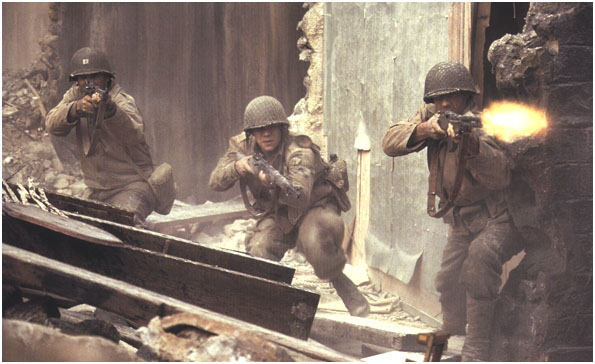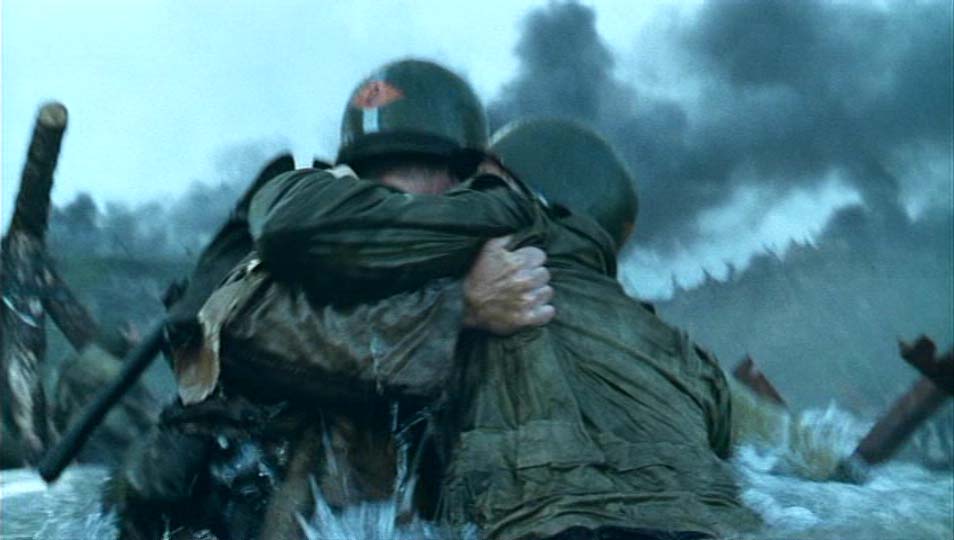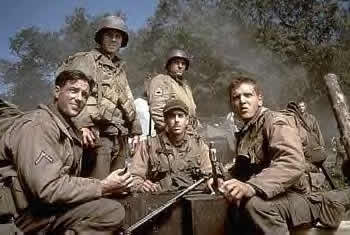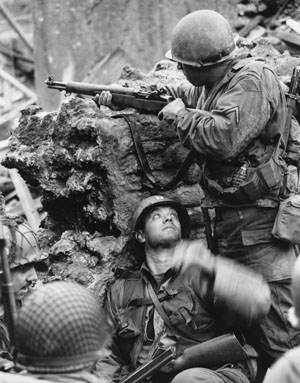
 |
 |
 |
 |
 |
 |
 |

cultural impact
the impact to the culture of america
Saving Private Ryan, a production under the direction of Steven Spielberg, a demonstration of how peope fight for tolerance, individualism, anti-totalitarianism, and economic justice. It promised that army life would not destroy a mans self-interests but would preserver the same balance between individualism and teamwork that Americans experienced in their sporting edeavors. Spielberg's turn to the moral individual in heroism and in pain at the expense of the moral or democratic community, however, suggests just how much this film is a product of the late twentieth century and not of the 1940s.
the idea of the impact
The attainment of democracy rested in the 1940s on a sense of reciprocity between individuals and the institutions that governed their lives. In a totalitarian state, government and institutions dominated individuals; in a democracy, a relationship of mutual respect existed between citizens and institutions. People served the nation because they believed the nation would serve their democratic interests in return. Narratives that endorsed this relationship, such as those found in many wartime films, effectively linked the fate of the individual with the fate of the nation. Today, however, narratives and images about the destiny of individuals command more cultural space than those about the fortunes of nations. As a result, both political speech and commemoration have more to say about victims or people who have met tragic fates. Spielberg's memory narrative of moral men represents very much the late twentieth century's concern with the singular person in the past, present, and future. Cohesive narratives that effectively link personal stories to collective desires for progress are harder to find. Those that exist are disrupted by images of victims.
what is left
Heroism and patriotism remain, but they must fight for cultural space with the claims of those who have sorrowful tales from the past or those who insist on redress rather than self-denial. Many believe that, since Vietnam, it is harder to commemorate gallantry and victory or to suppress individual subjectivities at the expense of collective ones. Thus delineations of victims—from Vietnam, from the AIDS epidemic, from racism, from child abusers, from rapists, from drugs, even from World War II—now command more cultural space. Statements of what was lost now eclipse expressions of what was gained.
copyright ©